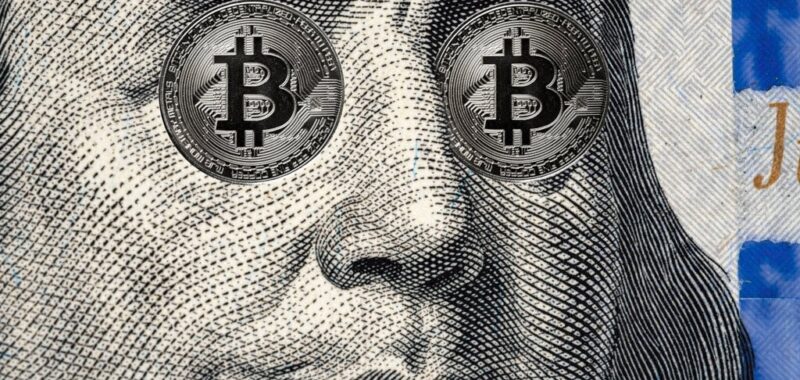In brief
- It’s too early to tell if Bitcoin’s decoupling from stocks is a long-term trend, say analysts.
- Bitcoin has been outperforming stocks in recent weeks.
- The largest cryptocurrency by market cap was recently trading at about $93,000, up 7% on the day.
Is Bitcoin decoupling from risk assets like equities and morphing into a “safe haven” like gold?
The largest cryptocurrency by market value is behaving differently these days, but it may still be too early to tell whether the new trend will hold, several analysts say.
The price of Bitcoin was recently trading near $93,000 on Tuesday, an almost 7% jump over the past day, according to crypto data provider CoinGecko. The asset’s price swelled after U.S. Treasury Secretary Bessent said that Washington’s tariff showdown with Beijing is “unsustainable,” and expected to de-escalate, per Bloomberg.
The uptick follows a bumpy trading session on Monday. The S&P 500 and Nasdaq fell 3%, while Bitcoin moved higher alongside gold. Before the selloff in equities began, the dollar weakened on Sunday after U.S. President Donald Trump applied pressure on Federal Reserve Chairman Jerome Powell to lower interest rates.
The divergence between equities and Bitcoin may be short-lived if it’s simply tied to a swoon in the greenback, Jake Ostrovskis, an OTC trader at Wintermute, wrote in a Tuesday note. The U.S. Dollar Index (DXY), which measures shifts in the dollar’s value relative to a basket of other currencies, will be a key measure to watch, he added.
“I think the move is primarily being driven by USD weakness,” he wrote. “If that’s the case, the decoupling from equities may not hold once the DXY stabilizes.”
Over the past month, Trump’s efforts to reshape global trade have hammered risk assets, as economists fear tariffs will lead to slower growth and higher costs for business and consumers. Compared to sell-offs in the past, Bitcoin has behaved differently, Compass Point analysts Ed Engel and Joe Flynn wrote in a Tuesday note.
Bitcoin has historically been highly correlated with equities during selloffs that are based on macroeconomic events, but the analysts wrote that the asset’s 30-day correlation with the S&P 500 recently stood at 0.65. A correlation of 1 signals a perfect, positive correlation between two variables; -1 would mean a perfect, negative correlation.
With Bitcoin’s performance since April 2–when Trump imposed harsh global tariffs on nearly all trading partners worldwide–somewhere between that of gold and the S&P 500, it’s clear that investors are rethinking how the leading cryptocurrency fits within broader markets, David Duong, head of research at Coinbase Institutional, told Decrypt.
He said that “growing U.S. dollar debasement concerns” are driving the shift, including those that stem from “unsustainable debt dynamics” and Trump’s willingness to target Powell.
Still, Duong said it’s too early to tell whether Bitcoin’s recent strength is part of a long-term shift in the asset’s perception among investors or more temporary.
“Bitcoin’s resilience in the last week while stocks maintained their downward trajectory seems to hint at shifting capital market assumptions,” he said. “However, I hesitate to say that Bitcoin has conclusively decoupled from traditional assets, as we would need to see this shift persist through varying market conditions before pegging it as a secular rather than cyclical trend.”
Edited by James Rubin

